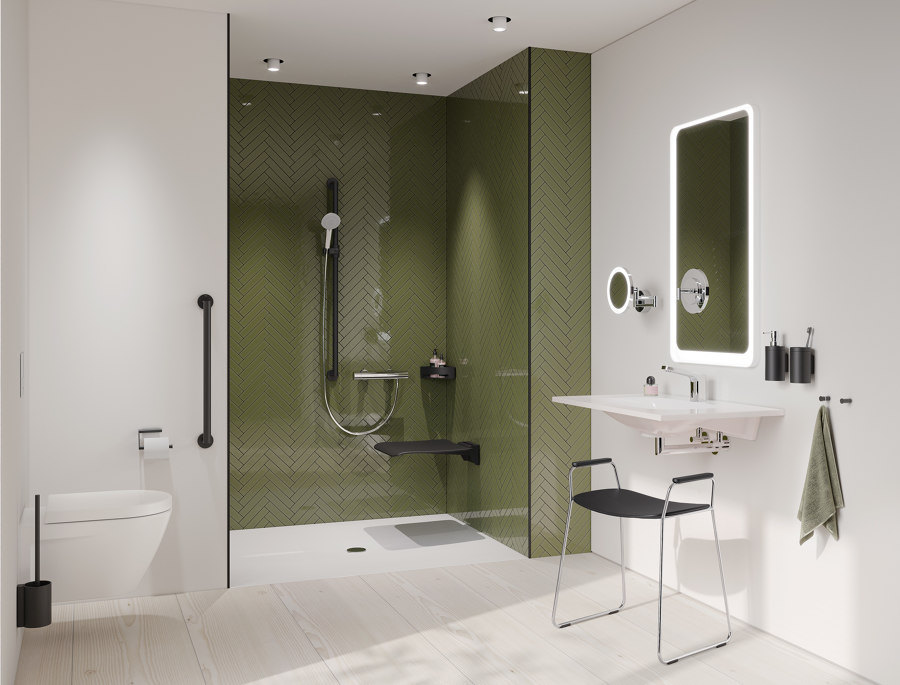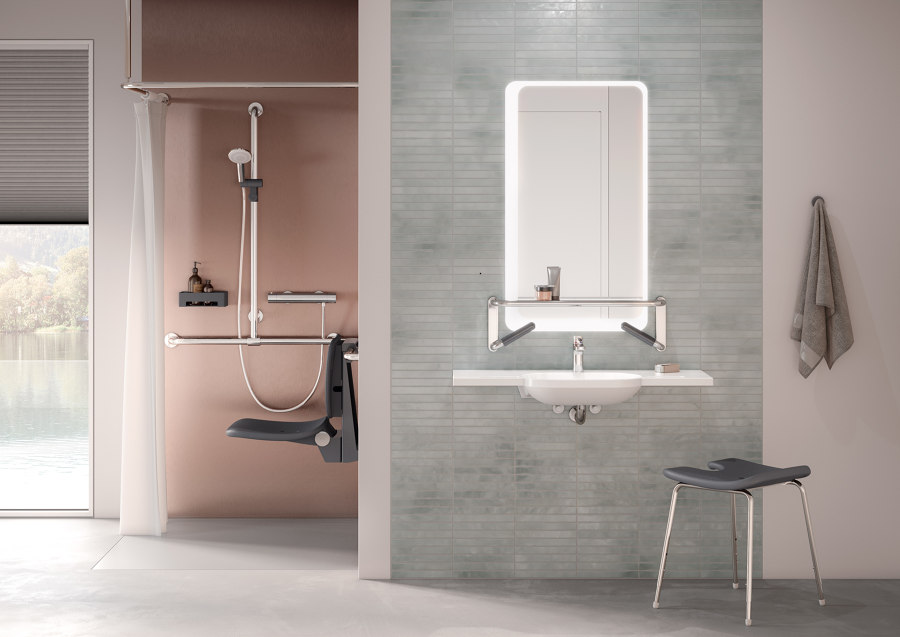The Esperanto of design languages: HEWI universal design
Storia del Marchio di Norbert Philipp
Bad Arolsen, Germania
01.06.21
HEWI creates bathrooms for every phase of life – in a design language that everyone can understand.
The design of washrooms and bathrooms is oriented towards basic human needs, but also towards very specific ones, such as the need for beauty
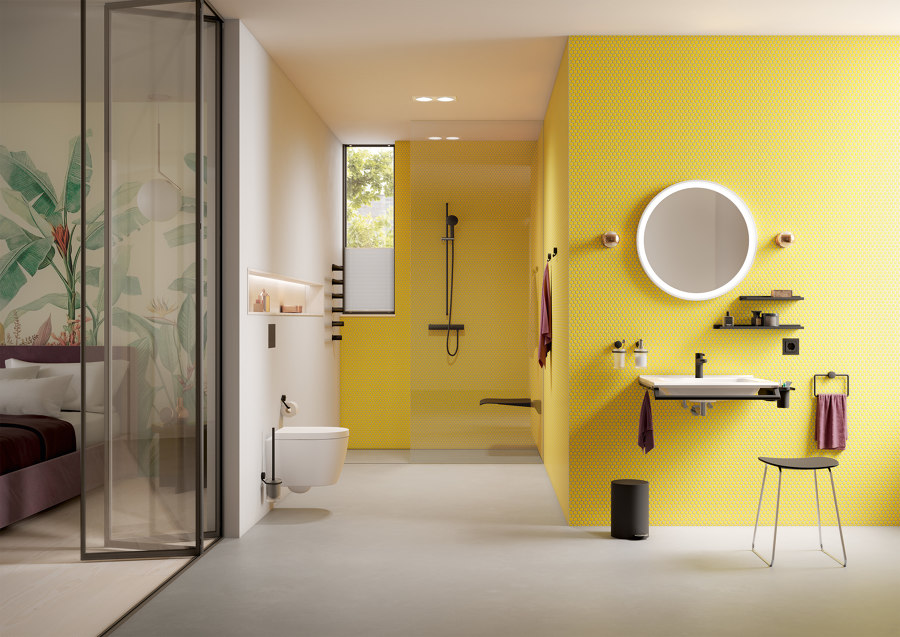
The design of washrooms and bathrooms is oriented towards basic human needs, but also towards very specific ones, such as the need for beauty
×People spend most of their time surrounded by architecture, in the presence of material objects. Most of them were invented and designed to help people in some way – to support, aid, assist, or simply just to make life more pleasant. Many products, spaces and built structures have indeed succeeded in this aim, but often only in special product segments, for very narrow target groups, or for a specific period of time.
The filigree design of System 815 lends lightness to the room. The sanitary accessories are characterised by minimalist use of materials and high functionality
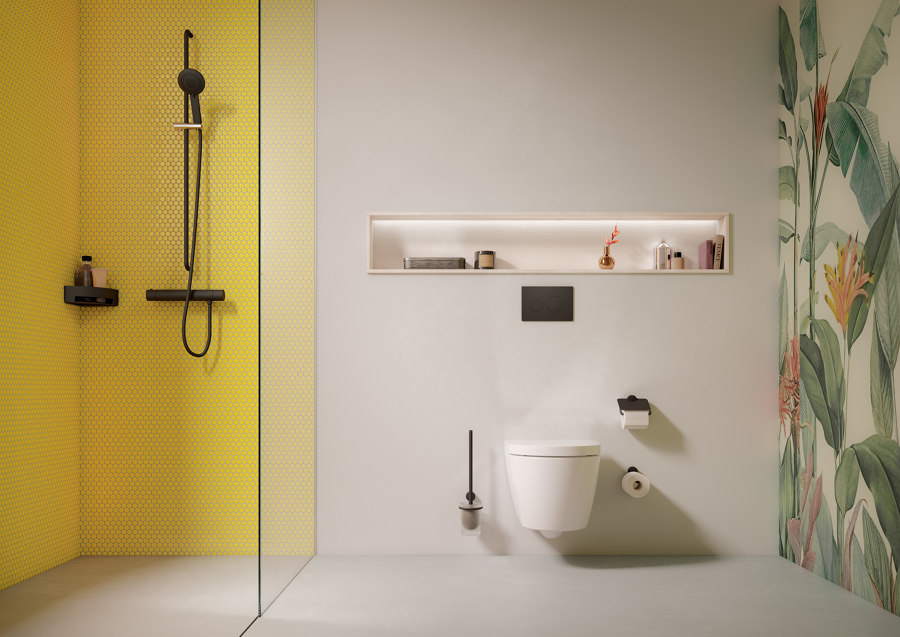
The filigree design of System 815 lends lightness to the room. The sanitary accessories are characterised by minimalist use of materials and high functionality
בUniversal design’, on the other hand, stretches the demands on design much further, to the extent that ultimately ‘everyone’ could be considered part of the target group, and the demands which individual people place on good design in their lives are actually met with a creative response. For decades now, HEWI has been consistently distilling this design approach down to a few important principles, which all focus on one thing: people.
In the video, HEWI outlines its attitude to design: ‘We take people's differences seriously. But still treat them equally in terms of design’
This premise has made one thing very clear for HEWI when it comes to product development: design is diversity. Design concerns everyone. Not one person more or the other less. And in addition, design affects everyone at all times, in each phase of life – even if one or the other may benefit a little more from the ideas of the designers, or the qualities of the product depending on their individual life situation, circumstances or health condition. Depending on the stage of life, a certain design element can gradually change from being a ‘nice-to-have’ into an indispensable support in undertaking normal daily activities.
This premise has made one thing very clear for HEWI when it comes to product development: design is diversity. Design concerns everyone. Not one person more or the other less
HEWI sums this philosophy up in three words: ‘Design Comfort Care’. These are principles that the company has long been committed to and applies to all levels of its designs – from the details of a soap dispenser to the systematic overall concept of professional care facilities and throughout the entire product portfolio, which ranges from door fittings and aesthetic accessories to barrier-free solutions in sanitary areas, and which is nearly as expansive as the open approach of universal design itself. And HEWI establishes another crosslink in the process, namely that a target group which can include all people is the relevant one. This includes professional care, of course, but also hotels, educational facilities, public spaces, as well as the place that people design privately and individually according to their own needs: their own home.
Good design should be self-explanatory, and HEWI doesn't need more than three words to say the most important thing: ‘Design Comfort Care’
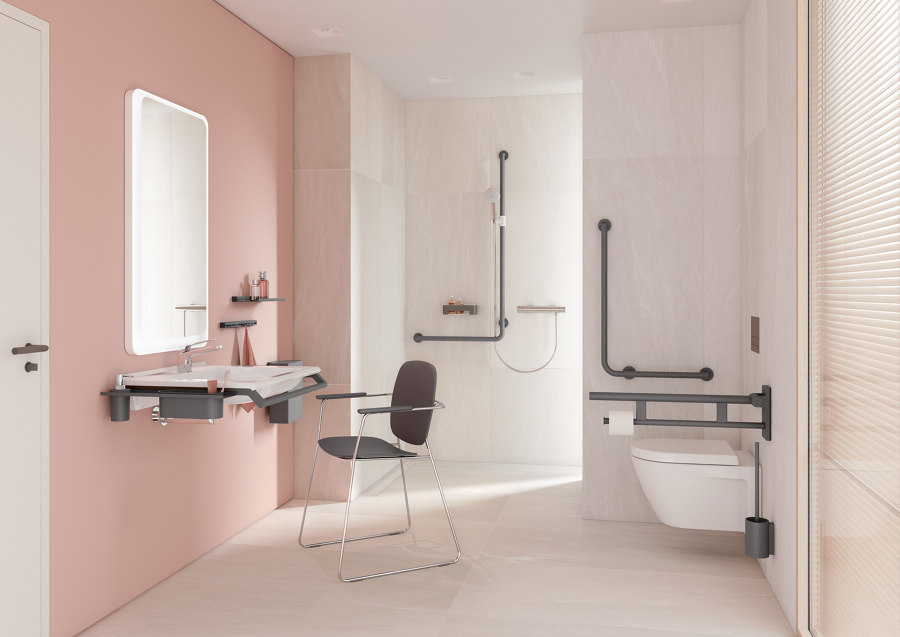
Good design should be self-explanatory, and HEWI doesn't need more than three words to say the most important thing: ‘Design Comfort Care’
×This year, HEWI is not only defining its new products on the basis of high-quality, hygienic and robust materials, but above all, from the conviction that design must serve everyone. The tried-and-tested ‘LifeSystem’, its professional series of care solutions, has long encapsulated the principles of universal design – in the hygienic, robust surfaces as well as in the underlying logic of the product design. The design reaches out in two directions: to the individuals who need assistance in daily life and also to those who support them – the care providers. And it does so without the need for explanation. Good design is self-explanatory. Perfectly intuitive.
Professional system for care: the barrier-free products from HEWI’s ‘LifeSystem’ series can be used regardless of physical conditions and promote the independence of the user
‘LifeSystem’ also gears the scale of its designs to the logical reference size: the human individual. And this is to be taken quite literally when products need to be adapted to the physical dimensions of individual users. HEWI therefore makes one thing clear in the human-design relationship: the products need to adapt to the user, not the other way around. It does this also by expanding the existing system as required, as people develop different needs over the course of their lives which they would not have dealt with in the past.
The HEWI System 900 meets the complex requirements of barrier-free bathrooms, and it does so in the architectural context of a wide variety of buildings, from hospitals and hotels to private bathrooms
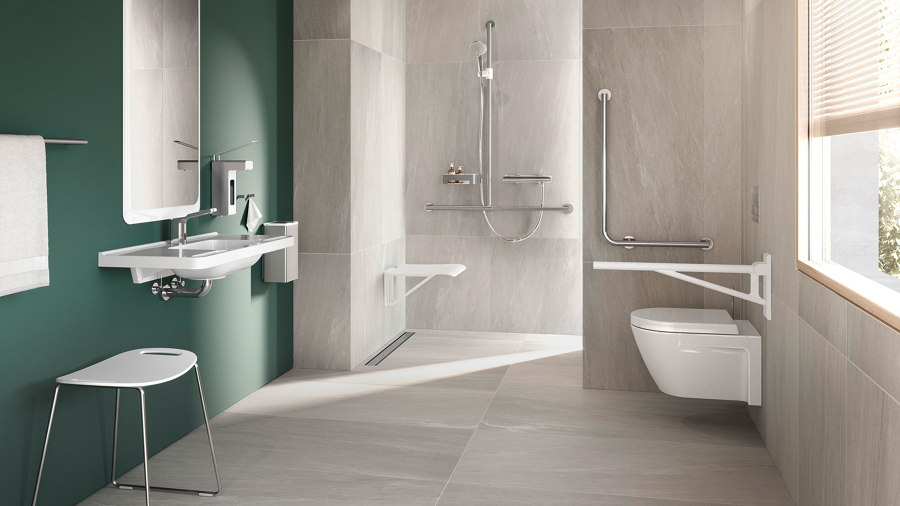
The HEWI System 900 meets the complex requirements of barrier-free bathrooms, and it does so in the architectural context of a wide variety of buildings, from hospitals and hotels to private bathrooms
×The existing System 900 is expanded to offer new options and combinations for even better functionality, with additional hinged support rails and shower seats, for example. It also includes a design focus that is all too often overlooked by barrier-free solutions: that products do not merely seek to be useful, but also visually pleasing. After all, beauty serves a purpose too, even if it’s primarily an emotional one. HEWI is engaged in a continuous effort to enrich its ranges aesthetically, too, with new surfaces in black matt now offered for the System 815 line of accessories that includes washbasins, WCs and showers, for example, as well as other fittings, which, with their noble appearance, fit into existing design concepts not only functionally but also visually.
The first point of contact between room and person is the door handle. Renowned architect Hadi Teherani designed Range 270 in stainless steel for HEWI
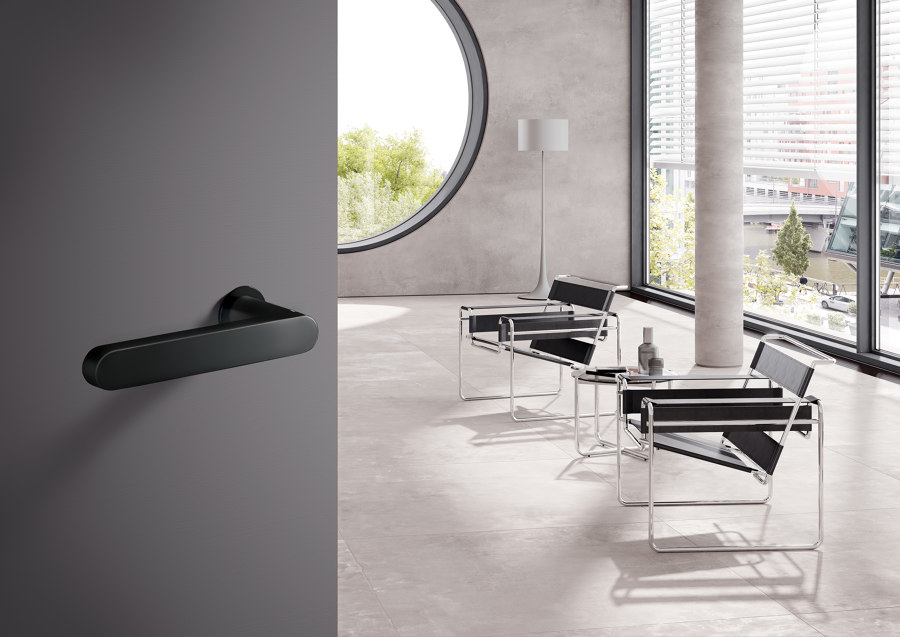
The first point of contact between room and person is the door handle. Renowned architect Hadi Teherani designed Range 270 in stainless steel for HEWI
×This also applies to design approaches that offer timeless style and flexible applications for different contexts, such as the 270 door handle designed by Hadi Teherani, or the HEWI seating family, which tastefully fulfills the functional and aesthetic requirements of sanitary areas in grey and black as well as in white tones. And at the same time, this approach satisfies a human need that ranks ahead of aesthetics on the list of our everyday requirements: the desire for safety.
© Architonic




